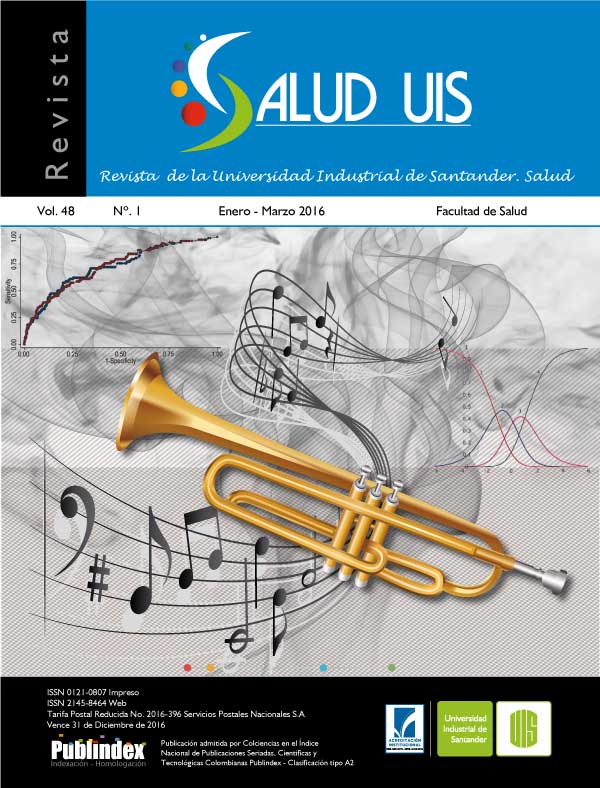Abstract
Objective: To analyze the social determinants of health present among indigenous farmers of Zenú reservation of San Andrés de Sotavento. Methodology: Descriptive cutting with a quantitative approach, 64 indigenous farmers of communities Celeste Imperio and Santa Elena of the municipality of San Andrés de Sotavento participated in 2012; they were selected by simple random sampling technique. The data collection was conducted through structured surveys flled by interview. Results: The age range of the target population oscillated from 18 to 70 years, there is 41% of total illiteracy, families are large with inbred orientation, living conditions are poor, there are no recreational activity or physical activity programs, 97 % earn less than the monthly legal minimum wage of community work product, 95.3% belongs to the subsidized health regime, all lack of affliation to occupational hazards and pension, 77% admitted that they had some accident in the last year also 70 % said they felt morbidity related to work activity. Conclusions: The identifed social determinants that negatively affect health were: socio-political, material circumstances, biological, behavioral and occupational factors; which are refected in defciencies in their quality of life, perceived morbidity, occupational accidents, weaknesses in the social protection system, high levels of absolute illiteracy, poverty and characteristics that undoubtedly reinforce the perverse and interdependent relationship between illiteracy, poverty and health. However, social cohesion was identifed as a positive infuence of health (94%).
Se autoriza la reproducción total o parcial de la obra para fines educativos, siempre y cuando se cite la fuente.
Esta obra está bajo una Licencia Creative Commons Atribución 4.0 Pública Internacional.
